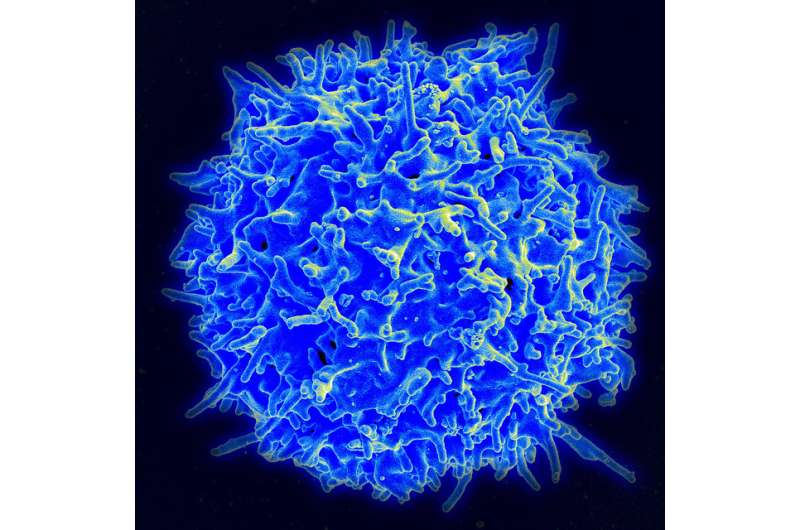This article has been reviewed according to Science X's editorial process and policies. Editors have highlighted the following attributes while ensuring the content's credibility:
fact-checked
peer-reviewed publication
trusted source
proofread
Researchers help identify mechanisms by which multiple myeloma escapes targeted immunotherapy

Researchers at Sylvester Comprehensive Cancer Center at the University of Miami Miller School of Medicine are part of an international team of scientists who identified mechanisms by which some multiple myelomas become resistant to initially effective T-cell therapies.
Targeted T cells can be rendered useless if the antigen they're tracking mutates, essentially disappearing from the radar screen. Here, the researchers report mutations that thwart immunotherapies engineered to seek out two targets in multiple myeloma, allowing previously treated cancers to adapt, escape treatment and relapse.
"Recognizing these mutations and gaining a clearer understanding of the resistance mechanisms to these potent immunotherapies is pivotal," said Francesco Maura, M.D., whose lab at Sylvester conducts myeloma computational and translational research.
"This knowledge plays a crucial role in devising tailored strategies and making informed choices regarding the selection of products and targets for individual patients." Maura is a senior author of the research published in Nature Medicine.
"Antigenic drift" is well established as a mechanism that tumors employ to develop resistance to immunotherapy. In this study involving 30 patients, the researchers focused on changes occurring in two potential targets on plasma cells: B cell maturation antigen (BCMA) and G-protein coupled receptor family C group 5 member D (GPRC5D). Chimeric antigen receptor T cells, or CAR-T cells, and "bispecific T-cell engagers," called TCE, are immunotherapies that can be engineered to target these antigens and have shown promise in treating relapsed or treatment-resistant multiple myeloma.
Over time, however, and as the cancer cells change, effectiveness often wanes. Few studies have been done to identify the reasons for this diminishing clinical response—and this is believed to be the first genomic study of "intrinsic" mechanisms of cancer cells that permit antigen escape in patients who relapsed after undergoing these immunotherapeutic approaches.
"We identified distinct and novel genomic events responsible for resistance to anti-BCMA and anti-GPRC5D immunotherapies," said C. Ola Landgren, M.D., Ph.D., who conducts computational and translational research in myeloma and is a co-author of the Nature Medicine paper.
"One important aspect of our findings is that mutations in the extracellular domain of BCMA have a distinct impact: They impede the binding of the therapeutic T cells without exerting any influence on the protein's expression or downstream signaling pathways. This finding revealed that the proportion of patients with myeloma who experience relapse due to antigen escape is considerably more extensive than initially anticipated," Landgren said.
The discovery of these mutational events that precipitate multiple myeloma relapse underscores the critical need to screen patients for these variants, according to the article. Additionally, "detailed characterization of these binding interactions will permit the rational design of next-generation T-cell redirecting agents and inform the optimal sequencing and combination of these immune-therapeutic approaches," the authors said.
More information: Tumor Intrinsic Mechanisms of Antigen Escape to Anti-BCMA and Anti-GPRC5D Targeted Immunotherapies in Multiple Myeloma, Nature Medicine (2023). DOI: 10.1038/s41591-023-02491-5



















